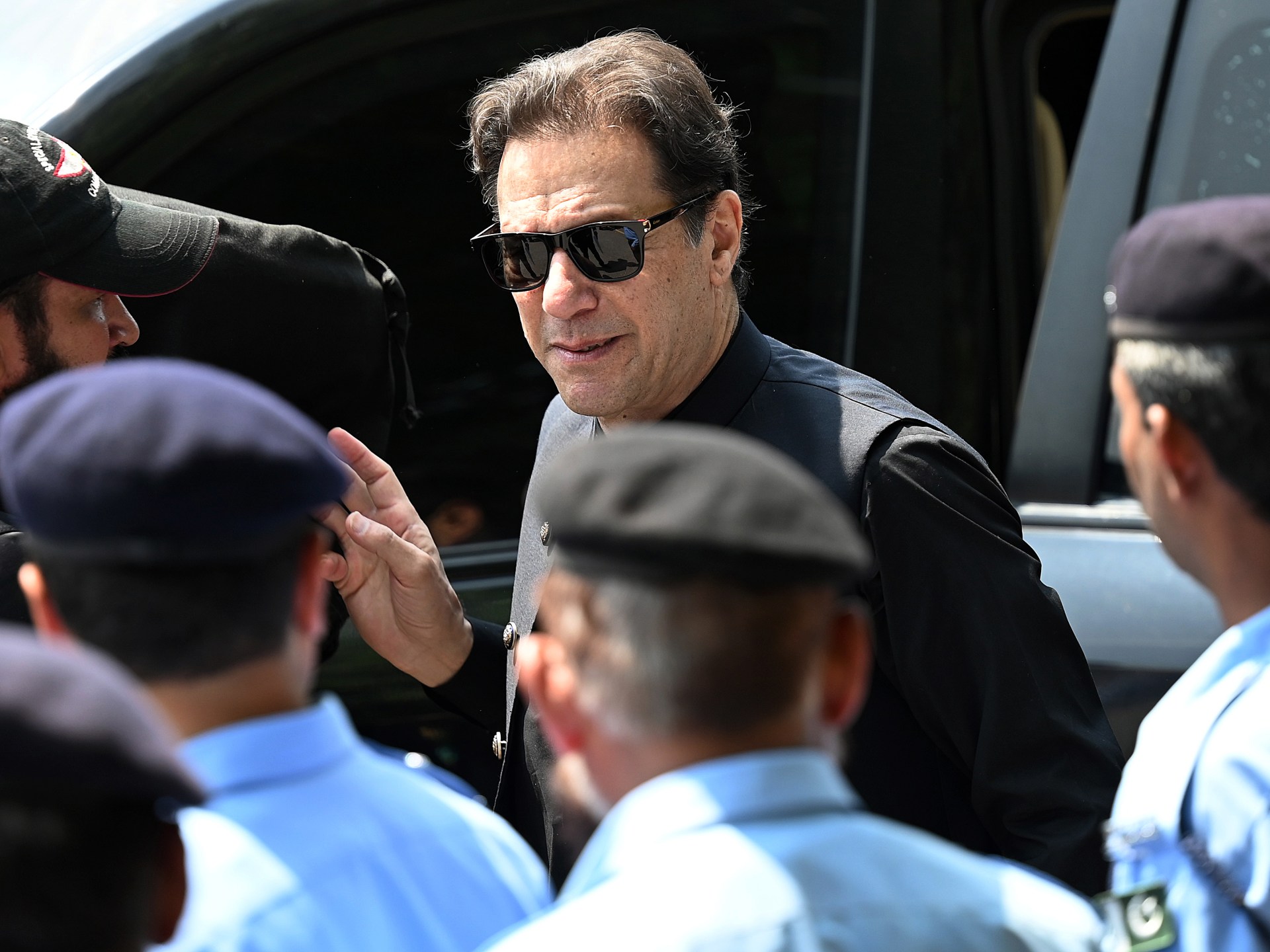
EXPLANATION
Modi today relies on a number of parties that have moved between his alliance and the opposition over the years.
Prime Minister Narendra Modi has announced that he will form the next government for the third term, but will seek the support of Allies after his Bharatiya Janata Party (BJP) won the first 2014.
The BJP secured 240 seats in the Lok Sabha, the lower house of parliament, suffering a heavy electoral defeat as opinion polls had predicted a victory for the Hindu nationalist party with a larger majority.
The parties of the BJP-led National Democratic Alliance (NDA) won 53 seats. Together, the NDA has 293 seats – 21 more than the 272 seats needed to form a government.
The NDA's allies, many of whom have changed their minds in the past, met on Wednesday and endorsed the BJP and Modi as leaders of the next government.
Learn more about the largest non-disclosure agreement Allies and their history of Alliance with the BJP in the past.
Janata Dal (United)
- Number of seats won in the 2024 election: The party won 12 seats in Bihar, four seats less than in the 2019 elections.
- JD(U) spokesperson KC Tyagi told news agency ANI that the party would submit a letter of support for Modi and would not return to the Congress-led Indian National Developmental Inclusive Alliance (INDIA), of which it was an important part.
- Nitish Kumar, leader of the JD(U) and current Chief Minister of the state of Bihar, was also one of the founding fathers of the INDIA alliance and has a long history of change of opinion. The JD(U) has allied itself with rival alliances led by the BJP and the Congress party over the last two decades.
- The JD(U)'s most recent political somersault came in January when it quit the INDIA alliance and joined the BJP. Kumar's decision to join the BJP helped the NDA win 29 of the 40 seats in Bihar.
- In 1999, the Samata Party, the predecessor of the JD(U), supported the NDA alliance under Prime Minister Atal Behari Vajpayee, under whom Nitish Kumar served as Railway Minister.
- The JD(U) was formed in 2003 after the merger of splinter groups of several parties. It allied with the BJP in the 2009 Lok Sabha elections.
- However, the alliance collapsed when the BJP announced that it would field Modi as its candidate for the 2014 elections. The JD(U) opposed this move because of Modi's role in the 2002 communal riots in Gujarat. The JD(U) touts its secular credentials and counts on Muslim voters among its supporters.
- In the 2015 Bihar Legislative Assembly elections, the JD(U) formed an alliance with the Congress and another regional party, the Rashtriya Janata Dal (RJD), against the BJP. They won the elections with an overwhelming majority. However, two years later, Nitish Kumar left the alliance and rejoined the BJP.
- The marriage did not last – again. In 2022, Kumar left the BJP and formed a government in Bihar with the RJD and the Congress.
Telugu Desam Party (TDP)
- Number of seats won in the 2024 election: 16 in the southern state of Andhra Pradesh. In the 2019 elections, the party won only three seats.
- Founded in 1982 by Telugu film actor NT Ramarao, the TDP is a major political player in the southeastern state of Andhra Pradesh.
- Its leader is N Chandrababu Naidu, Ramarao's son-in-law. On Wednesday, Naidu promised that his party would support the BJP in its quest for a third term.
- After the 1996 Lok Sabha elections, the party was part of an alliance of regional parties called the United Front, which received external support from the Congress.
- In 1999, it merged with the BJP. They contested elections together and the TDP was part of the NDA under Prime Minister Vajpayee.
- But in 2002, after the riots in Gujarat, Naidu demanded Modi's resignation. The BJP, his ally, rejected the demand.
- In the 2009 elections, the TDP was not allied with either the Congress or the BJP. Instead, it took the lead in forming the Third Front, a regional alliance of parties.
- In 2014, BJP and TDP came together again to form an alliance.
- But in 2018, the TDP withdrew from the NDA and Naidu accused Prime Minister Modi of ignoring his demand for a special financial package for Andhra Pradesh.
- This separation lasted for six years until the BJP and TDP reconciled in February ahead of the Lok Sabha elections. The TDP also secured a comfortable victory in the Andhra Pradesh assembly elections, which were held parallel to the Lok Sabha elections.
Shiv Sena (SHS) – Eknath Shinde
- Number of seats won in the 2024 election: Seven in Maharashtra.
- Shiv Sena (SHS) was formed in 2022 after some of its MPs defected from their parent party – the Shiv Sena – and subsequently successfully convinced election officials and courts to allow them to use the party name. Eknath Shinde, the current Chief Minister of the state of Maharashtra, is the leader of Shiv Sena (SHS).
- The united Shiv Sena won 18 seats in 2019. The faction from which Shinde and his team split is now known as Shiv Sena (Uddhav Balasaheb Thackeray) – it won nine seats in the 2024 elections. It is part of the Opposition INDIA Alliance.
- The Shiv Sena was founded in 1966 by Bal Thackeray as a right-wing party. The party has been accused of targeting migrants and Muslims in Mumbai, India's financial hub. Many of its leaders have been accused of making anti-Muslim hate speeches and participating in riots in the early 1990s.
- The Shiv Sena party, whose headquarters are mainly in the state of Maharashtra, is allied with the BJP and has formed coalition governments with the Hindu nationalist party since 1989.
Nationalist Congress Party (NCP) – Ajit Pawar
- Number of seats won in the 2024 election: One in Maharashtra.
- This NCP, led by Ajit Pawar, is a breakaway from NCP founder Sharad Pawar and is now called NC-PSP after a split in July 2023. The India-allied NCPSP won eight seats in Maharashtra. The party is now led by Sharad Pawar's daughter Supriya Sule.
- In 2019, the then united NCP won four seats.
- Founded in 1999, the mother party stands for Marathi nationalism and secularism. From 1999 to 2023, the NCP was an ally of the Congress Party and part of its United Progressive Alliance (UPA). Between 2004 and 2014, the Congress Party ruled at the Centre.
- In April, Ajit Pawar, Sharad Pawar's nephew, told news agency ANI that he joined the NDA because his ideas about development are in line with those of Modi.
Lok Janshakti Party – Ram Vilas (LJPRV)
- Number of seats won in the 2024 election: Five in Bihar.
- It is headquartered in the state of Bihar.
- LJPRV was founded in 2021 as a spin-off from the Lok Janshakti Party (LJP), which was founded by the late Ram Vilas Paswan. In 2019, the then united LJP won six seats. Ram Vilas Paswan's son Chirag Paswan now heads the LJPRV.
- The LJP was part of the NDA from 2000 to 2003 and then again from 2014 to 2021.






Recent Comments